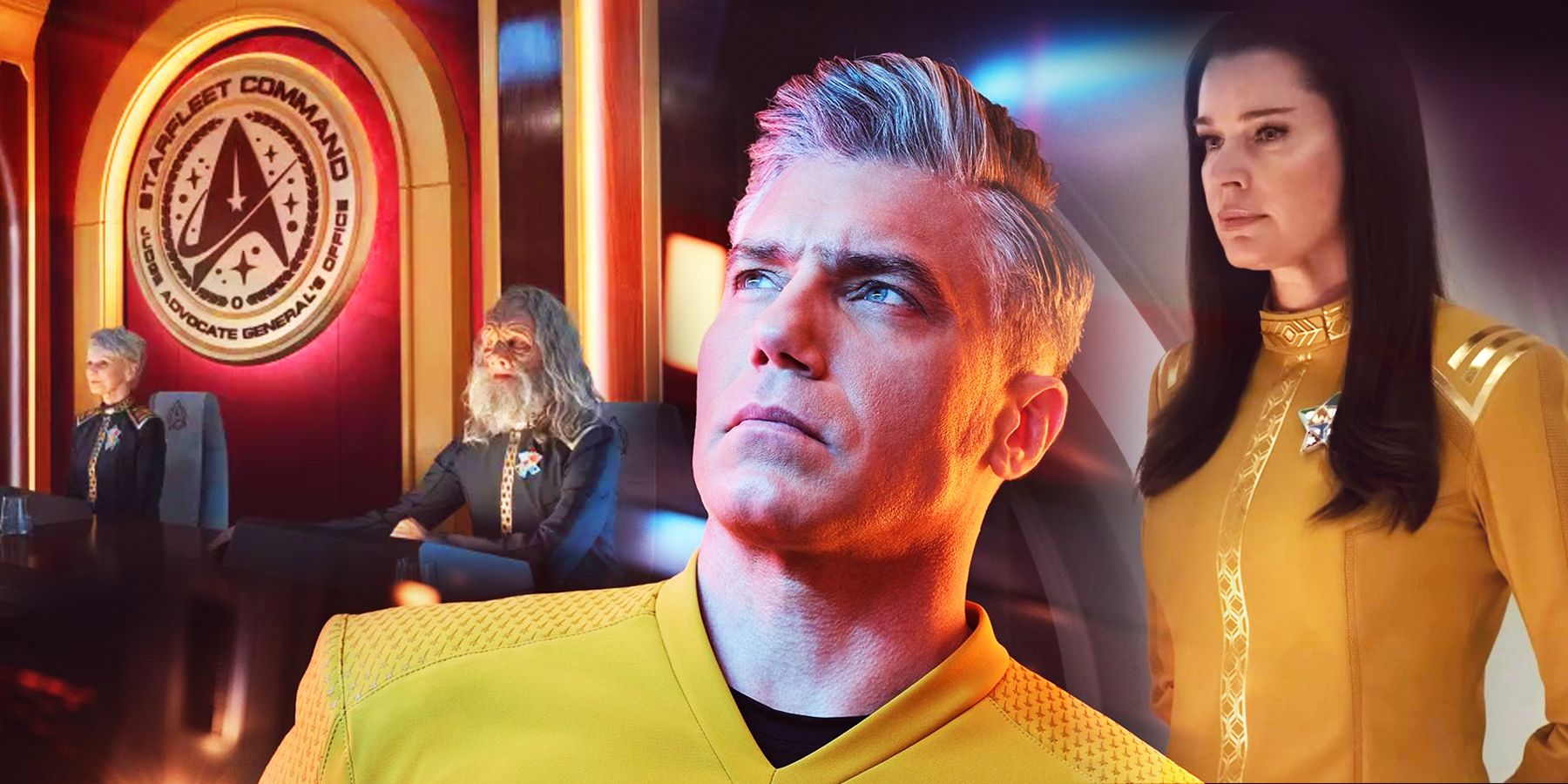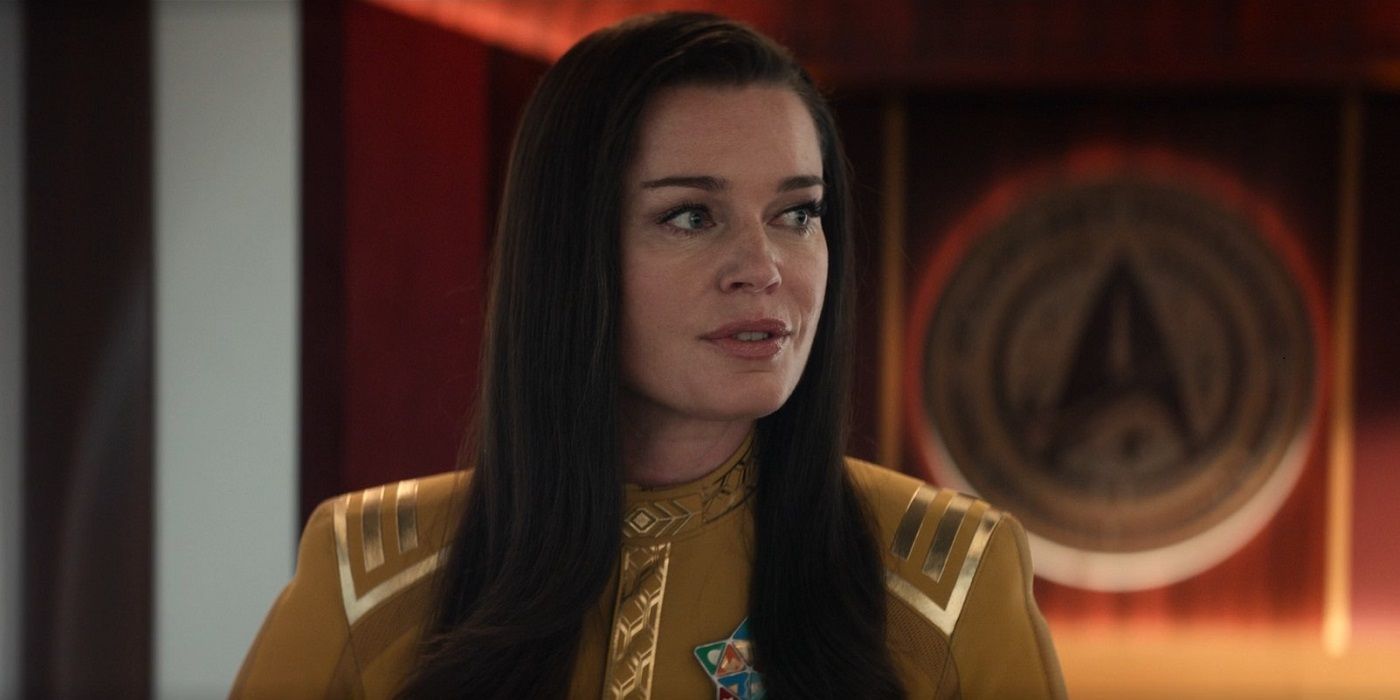The following contains spoilers for Star Trek: Strange New Worlds Season 2, Episode 2, "Ad Astra per Aspera," now streaming on Paramount+.
Star Trek tends to do unusually well with trial episodes. Courtroom dramas always make for gripping television when delivered correctly, as well as requiring just one set: always a factor in budget-conscious sci-fi TV. At the same time, the inherent drama of a trial allows Star Trek to explore some of the larger philosophical issues that creator Gene Roddenberry imagined for it. Over the years, that's included everything from repackaging the original pilot "The Cage" as The Original Series doubleheader "The Menagerie" to Q's "trial of humanity" in the first episode of Star Trek: The Next Generation.
Star Trek: Strange New Worlds hits all the right notes with its own contribution to the franchise's courtroom dramas. After being arrested at the end of Season 1, Una Chin-Riley finally faces the music in Season 2, Episode 2, "Ad Aster per Aspera." She can't argue the facts because she did break the law, so her attorney argues that the law is unjust. It turns the trial into a larger fulcrum to talk about systemic persecution: very much in keeping with similar classic Trek episodes.
Star Trek Uses Trials to Talk About Big Issues
"The Menagerie" uses the trial as an excuse to air "The Cage," which is framed as evidence to exonerate an apparent mutiny by Mr. Spock. (The original pilot wasn't picked up, but a second pilot was ordered with an almost entirely new crew.) The Vulcan takes control of the Enterprise in order to take Chris Pike -- now paralyzed -- to Talos IV, where he can live out his days in a fantasy world with his love Vina. Not only does it establish the format and precedent for courts-martial in Star Trek, but it uses the trial to debate the ethics of disobeying orders in the face of a perceived greater good.
That pattern continues when Captain Kirk takes his turn in Season 1, Episode 20, "Court Martial." It's largely a potboiler, though it benefits from good performances and some expected dramatic twists. It also embraces the old human vs. machine debate, as a computer's recording is viewed as infallible over Kirk's testimony, only for Mr. Spock to prove that it can be fooled. Subsequent series often use the same formula, with The Next Generation delivering the apex in Season 2, Episode 9, "The Measure of a Man." Data goes on trial to determine whether he is an individual with rights or a machine that belongs to Starfleet. In the process, it dives head-first into the big questions posed by a sentient android ("Does Data have a soul?" the judge asks rhetorically at one point), and remains one of the best Next Generation episodes of all time.
Strange New Worlds Adds to the Legacy of Star Trek's Courtrooms
"Ad Aster per Aspera" trends away from sci-fi conundrums and more toward social justice: examining the Federation's ban on genetic augments as a stand-in for prejudicial laws of any sort. It includes both the visual trappings of earlier Star Trek trial episodes (including the snazzy formal uniforms of The Original Series era) and narrative twists such as a lawyer or a judge who shares a past with the person on trial. In this case, Una's advocate Neera is an old friend with whom she had a falling out.
But as with the earlier episode, the larger issue takes center stage. Una's case looks grim -- she lied on her application -- but Neera uses it to argue that the law itself results in the discrimination of those like Una who have done nothing wrong. They fail to get the law changed, though Una is exonerated by a clause allowing those oppressed to seek asylum in Starfleet. "Ad Aster per Aspera" uses the given and take of the courtroom to play that out beautifully.
In the process, it hammers home the point that -- for all its benevolence -- the Federation is still far from perfect. And unlike earlier Star Trek episodes, its victory is incomplete, with Neera stating at the end of the episode that it's just the beginning of a larger fight. It's an effort to reflect reality and contemporary issues just as the old shows did, only with more boldness and additional nuance to the storytelling. It adds to one of Star Trek's stronger storytelling traditions, as well as setting a high bar for the remainder of the season.
New episodes of Star Trek: Strange New Worlds stream every Thursday on Paramount+.



